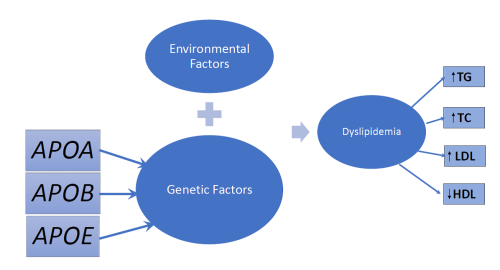
Suzanne A Al-Bustan
Kuwait University, Kuwait
Title: Genetic association studies of dyslipidemia and their implications
Biography
Biography: Suzanne A Al-Bustan
Abstract
Plasma lipids have been well documented to be influenced by lifestyle factors, such as diet, obesity, and physical activity, as well as genetic factors. Persistent fluctuation in levels of cholesterol (TC), triglycerides (TG), and low-density lipoprotein (LDL), as well as decreased high-density-lipoprotein (HDL), often lead to clinical dyslipidemia which may consequently manifest into diabetes mellitus and/or coronary heart disease. Genetic association studies including genome wide association studies (GWAS) have attempted to elucidate the genetic and molecular mechanisms of dyslipidemia and have identified a limited number of candidate genes and pathways relevant to lipid metabolism and/or transport. However, conflicting results across different populations and ethnic groups have been reported. Variation in DNA sequences and candidate genes for blood lipid levels, therefore, remain unresolved. To demonstrate the importance of identifying cofounding gene variants in candidate gene loci relevant to specific ethnic groups and their role in dyslipidemia results from different studies conducted on the Kuwaiti population will be presented. Genetic association of the APOA promoter sequence, APOB and APOE common variants, and other related gene loci have been studied and positive association results from these will be presented. These include the association of the I -75G>A with increased levels of LDL-C and TC, APOB signal peptide and 3611 MspI polymorphisms with variation in TG levels and the APOE2 with LDL-C levels in the Kuwaiti population sampled. The nutrition of Kuwaitis is relatively high in fat and the lifestyle adapted by many in the Kuwaiti population often lead to an increase in many of the risk factors leading to heart disease especially dyslipidemia making this population ideal for genetic association studies. Important implications and conclusions drawn from these studies will be discussed.


